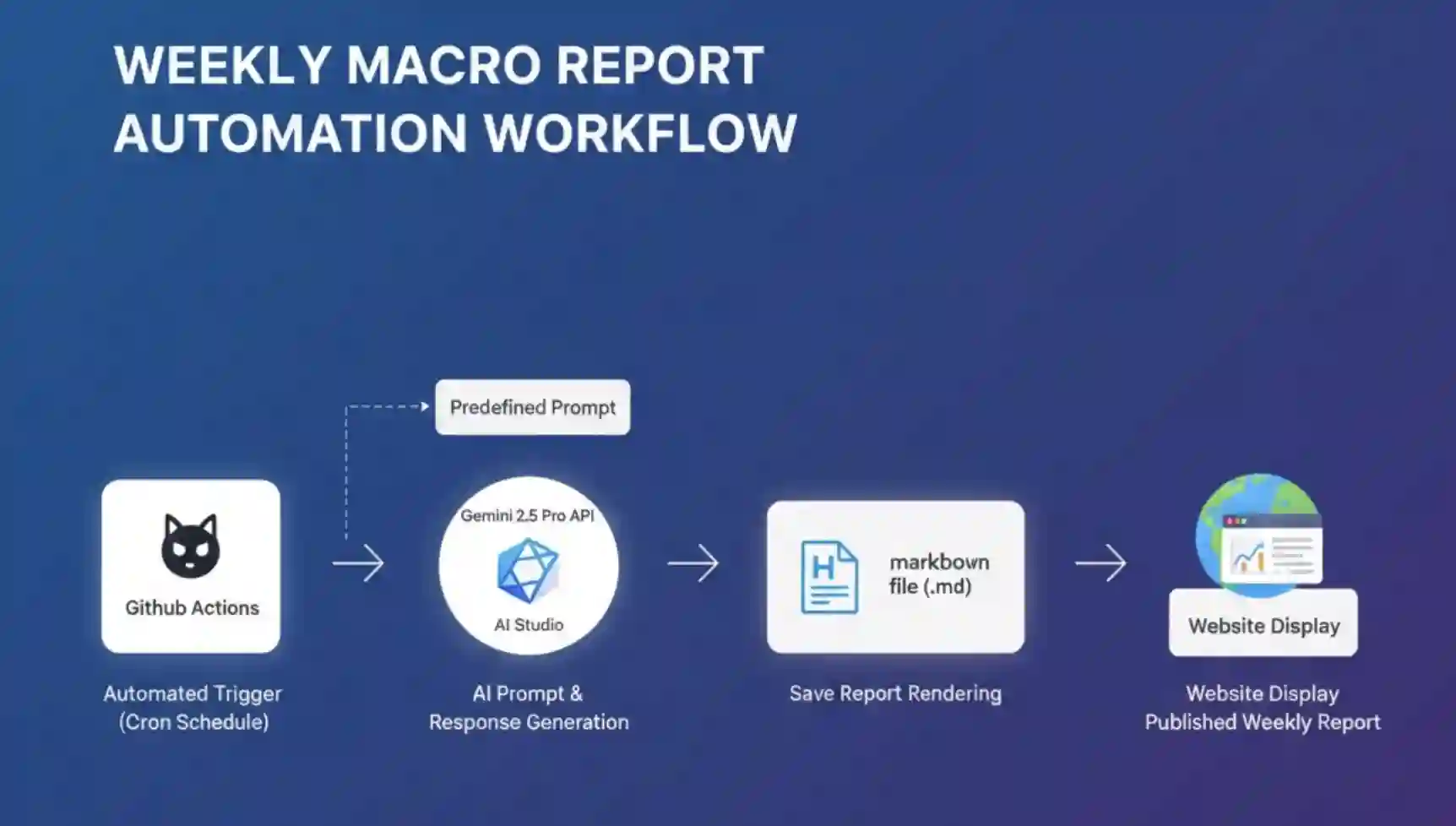Recent updates 🗞️
📉 US unemployment rate at 4.3% as of August 2025
🇺🇸 US government shutdown ended on Nov 12 2025
⭐️ Google rolls out Gemini 3
🎥 Watching Allen Iverson’s documentary on Prime
📚 Reading “Empire of AI” by Karen Hao
YTD Portfolio Performance: +52.6% YTD
TLDR: I used Google Antigravity to upgrade the Weekly Macro Report section of the blog, shifting from a manual coding approach to “vibe coding.” The session resulted in refactoring the content structure to support historical archiving, updating the GitHub workflow to save reports chronologically, and enhancing the AI generation prompt with Google Search grounding for better accuracy.

If you are not familiar, I implemented the “Weekly Macro Report” using Github Actions and Gemini 2.5 Pro API using AI Studio. The Github Action calls the Gemini API with a predefined prompt and saves the response to a markdown file. The markdown file is then rendered by Hugo and displayed on the website.

Weekly Macro Report workflow
This month, I decided to lean fully into “vibe coding” to tackle some necessary improvements on the site, specifically for the Weekly Macro Report. Instead of getting deep into the weeds of Hugo taxonomy and YAML syntax myself, I used Google Antigravity to drive the development process. The goal was straightforward: stop the weekly report from overwriting itself and instead build a proper archive of economic data, while also making the AI-generated content smarter.

The session began with a structural refactor that I observed rather than typed. The agent identified that the single macroreport.md file was too limiting. It converted that file into a section by renaming it to _index.md and updating the front matter. This change was critical because it transformed the macro report from a static page into a list page capable of housing multiple entries. It was a subtle shift in the file system that completely opened up the architecture for weekly archiving.
Once the structure was in place, we moved to the backend logic in the GitHub Actions workflow. The agent modified the weekly-macro-report.yml file to change the output path. Now, instead of overwriting the same file every Friday, the system saves the report using a YYYY-WW.md date format. This ensures that we keep a historical record of every report generated. Simultaneously, the agent updated the Gemini prompt within the workflow. It requested a more structured output with specific headings for Inflation, Labor Market, and GDP, and significantly, it added googleSearchRetrieval to the API payload. This inclusion means the model is now grounded in real-time Google Search data, reducing hallucinations and increasing the relevance of the financial insights.
Watching the verification process in the terminal was the final piece of the puzzle. The Hugo build ran automatically, detecting the source changes and rebuilding the site in milliseconds without throwing any errors. The “Walkthrough” panel on the side kept a running log of these changes, confirming that the file paths were correct and the new index page was generating as expected.
It was a refreshing way to work; by focusing on the high-level intent of the feature, I was able to oversee a complex refactor and logic update without getting lost in the implementation details.
Cheers 🥂